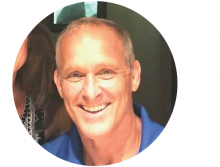
There is definitely a correlation between the age of investors, analysts and investment strategists when it comes to their recommendations.
In general in this current market, you hear older strategists recommending that investors exercise caution and reduce risk. With that said, I would include those, say, 40 to 50 years old and up. Why is this? Are they just old fuddyduddies and out of sync with the market? Not that younger ones aren't also exercising caution, but the ones who do are a much smaller percentage of their age group.
The older investors have a long history of first hand experiences with the gyrations of the markets. While having a formal education in the "ways of investing" is absolutely a necessity, there is nothing like learning first hand by putting your own money and career at risk. Pain is a great teacher. The more bulls and bears those investors have experienced in their careers, the better.
Every great investor will tell you that they have experienced investment failures. It is simply just part of the "on-the-job" learning process. Older investors such as Buffett, Munger and Dalio are much more candid in admitting their failures because they are established and are near the end of their careers. It is often enlightening to ask an advisor about their failures. If an advisor skirts the question, run as fast as you can to the door, because, otherwise, you will be part of their "on-the-job" educational process
Learning vicariously through the experiences of seasoned investors can and does expedite the "on-the-job" learning process. Reading their books is a great exercise to super charge the learning process. When we are young, we are more often than not cock sure of our capabilities, but as we experience the pain of failure, we either drop out of the game or learn significant lessons and make adjustments in our thought processes and style.
I have kept a database of all my investments since beginning investing in the early 1980's. This includes rate of returns, dividends and capital gains. This serves to keep me cognizant of my failures. Some of those errors include MCI, Hechingers, Dana Corp, Washington Mutual and others. The value of this is the experiences have helped me become a much better investor over time. We each have an infinite ability to improve if we embrace our failures rather than ignore them.
Every serious investor who eventually succeeds is constantly learning and adjusting their style and thinking. This is also why mentorship is so important. If it had not been for Thomas Scott of the Pennsylvania Railroad, Andrew Carnegie may not have been the man he became.
As Isaac Newton said, "If I have seen further than others, it is by standing on shoulders of giants."

